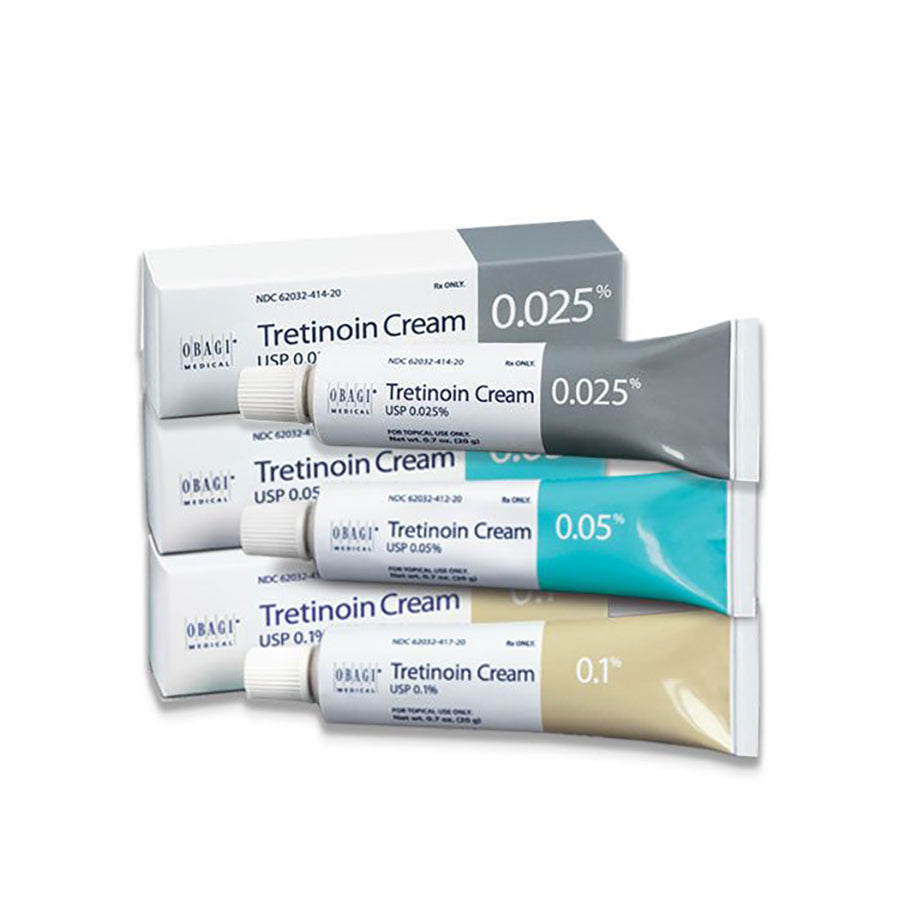
Clear Skin with Tretinoin: A Comprehensive Guide to Usage, Benefits, Efficacy, and Side Effects
Share
Tretinoin, also known as Retin-A, is a topical medication that is commonly used to treat acne and reduce the appearance of wrinkles. It is a derivative of vitamin A and works by increasing cell turnover and reducing inflammation in the skin.
Benefits of using Tretinoin for acne
Tretinoin has several benefits when used for acne treatment, including:
-
Reduction of acne: Tretinoin helps to reduce the appearance of acne by unclogging pores and reducing inflammation. It can also prevent the formation of new acne breakouts.
-
Improvement in skin texture: Tretinoin can improve the texture of the skin by reducing the appearance of fine lines, wrinkles, and other signs of aging.
-
Reduction in hyperpigmentation: Tretinoin can help to reduce the appearance of dark spots and hyperpigmentation caused by acne breakouts.
-
Increased collagen production: Tretinoin can stimulate the production of collagen, which can improve the overall appearance of the skin and reduce the appearance of fine lines and wrinkles.
-
Reduction in sebum production: Tretinoin can help to reduce the amount of sebum produced by the skin, which can help to prevent acne breakouts.
-
Improvement in skin tone: Tretinoin can help to even out skin tone and reduce the appearance of discoloration caused by acne breakouts.
-
Prevention of acne scarring: Tretinoin can help to prevent the formation of acne scars by reducing inflammation and promoting the healing of the skin.
-
Increased skin cell turnover: Tretinoin can help to increase the rate of skin cell turnover, which can help to prevent the formation of acne breakouts.
-
Non-comedogenic: Tretinoin is non-comedogenic, which means that it won't clog pores or contribute to the formation of acne breakouts.
-
Long-term benefits: Tretinoin can provide long-term benefits for the skin, including improved texture, tone, and overall appearance. It can also help to prevent the formation of new acne breakouts, making it an effective long-term treatment option for acne-prone skin.
Tretinoin for wrinkles
Tretinoin can also be used to improve the appearance of wrinkles by:
- Stimulation of collagen production: Tretinoin can help to increase collagen production in the skin, which can improve skin elasticity and reduce the appearance of fine lines and wrinkles.
- Improvement of skin elasticity and firmness: Tretinoin can help to improve the overall texture and firmness of the skin, leading to a more youthful appearance.
Tretinoin side effects
Like all medications, Tretinoin can cause side effects, including:
- Common side effects, such as dryness and irritation: Tretinoin can cause dryness, redness, and peeling of the skin, especially during the first few weeks of treatment.
- Less common side effects, such as hyperpigmentation and allergic reactions: Some people may experience an allergic reaction to Tretinoin, which can cause itching, swelling, and difficulty breathing.
- Overdose and drug interactions: Overdosing on Tretinoin can be dangerous and can cause severe skin irritation and other symptoms. Tretinoin may also interact with other medications, so it's important to talk to a doctor before starting treatment.
How to use Tretinoin for acne
To use Tretinoin for acne treatment, it's important to follow these steps:
- Precautions before starting Tretinoin treatment: It's important to avoid sun exposure and to use a sunscreen with a high SPF while using Tretinoin. It's also important to avoid using other topical medications on the same area of skin.
- Step-by-step instructions for using Tretinoin: Tretinoin should be applied once daily to clean, dry skin. A pea-sized amount should be applied to the entire affected area.
- Tips for minimizing side effects: To minimize side effects, it's important to start with a low concentration of Tretinoin and to gradually increase the dosage over time. It's also important to avoid using too much Tretinoin at once, as this can cause irritation.
Tretinoin for acne: Before and after
It's important to have realistic expectations for Tretinoin treatment, as it may take several weeks or months to see results. Some people may experience an initial worsening of acne before seeing improvement. Results may vary, but after 1, 3, and 6 months of treatment, Tretinoin users may notice:
- Reduced frequency and severity of acne breakouts
- Smoother, more even-toned skin
- Improvement in the appearance of acne scars

(Source: Healthline)
How Tretinoin compares to retinol and adapalene
Tretinoin, retinol, and adapalene are all forms of retinoids, which are derived from vitamin A. Although they share some similarities, they differ in their chemical structures and how they work in the skin. Here's a breakdown of how Tretinoin compares to retinol and adapalene:
-
Chemical structure
- Tretinoin is a retinoid acid, which means it's the most potent form of vitamin A.
- Retinol is a weaker form of vitamin A and needs to be converted to retinoic acid by the skin before it can be effective.
- Adapalene is a synthetic retinoid that's structurally different from both Tretinoin and retinol.
-
How they work
- Tretinoin works by binding to retinoid receptors in the skin, which helps to regulate skin cell turnover and reduce inflammation. It's the most effective retinoid for treating acne and improving skin texture.
- Retinol works by converting to Tretinoin in the skin. It's less potent than Tretinoin and takes longer to see results, but it's gentler on the skin and may be better suited for those with sensitive skin.
- Adapalene works by binding to different types of retinoid receptors in the skin, which helps to reduce inflammation and prevent the formation of acne lesions. It's also less irritating than Tretinoin and may be a good option for those with sensitive skin.
-
Pros and cons
- Tretinoin is the most effective retinoid for treating acne and improving skin texture, but it can be irritating and requires a prescription.
- Retinol is gentler on the skin and available over-the-counter, but it's less effective than Tretinoin and takes longer to see results.
- Adapalene is less irritating than Tretinoin and can be effective for treating acne, but it may not be as effective for improving skin texture and requires a prescription.
